Due to scheduling conflicts, Thad and I were unable to record our episode of Beneath the Screen of the Ultra-Critics. We will return in two weeks with an episode about the Hays Code. This time both our voices will be audible, so it doesn’t sound like one long Andy Kauffman style prank.
This week though Thad and I decided, in light of Elementary being renewed for another season, to rank our favorite Sherlock Holmes in film and television. We had one caveat; the character has to actually be Sherlock Holmes. What this means is characters like Dr. Gregory Hous (Hugh Laurie) who are clearly inspired by Holmes are not eligible. Nor is Justin Playfair (George C. Scott) on the list because he only believes he is Sherlock Holmes and that doesn’t count either. Sadly, this means Basil of Baker Street (Barrie Ingham) is nowhere to be found but rest assured he is, in fact, one of the great fictional detectives.
Once again, we blithely court controversy by daring to rank the portrayals of a fictional detective over a hundred and thirty years old. We fully acknowledge that this is list is the only one of its kind in existence. Which makes our decisions all the more final and inarguable.
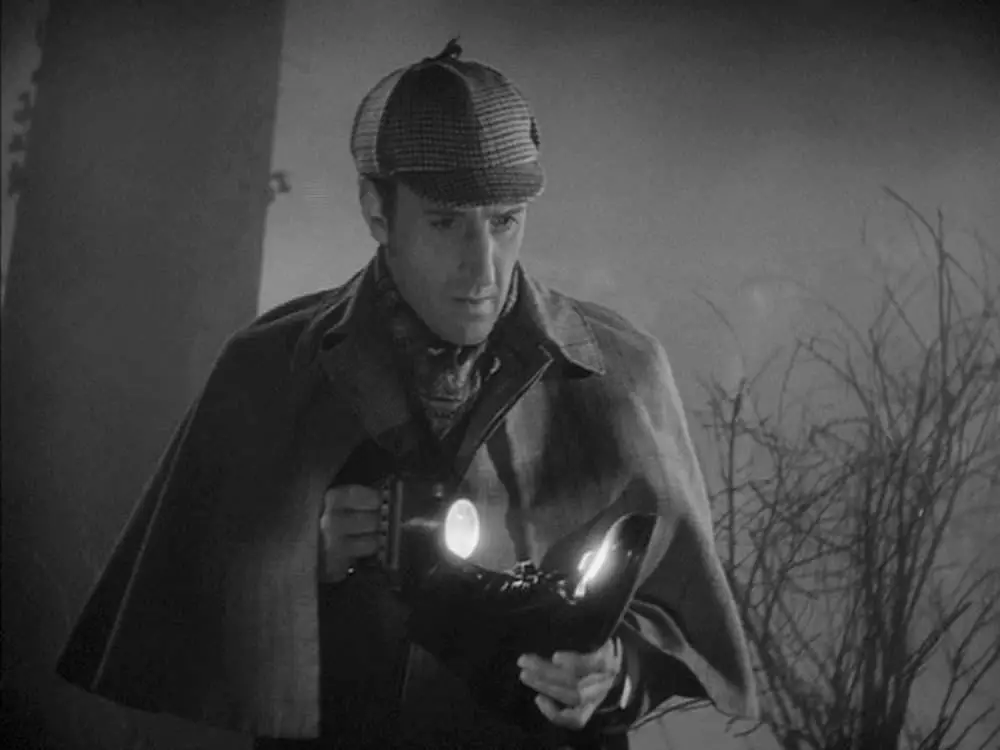
5. Basil Rathbone
Sherlock Holmes’s iconic deerstalker hat came not from Doyle, so much as from the illustrations that accompanied the Holmes stories in The Strand. Likewise, the image of Holmes we conjure up in our brain when we think of the Baker Street occupant is more than likely Basil Rathbone’s. Remarkable since, even though Rathbone played Holmes for seven years, few people today have seen or heard of him.
Yet, all prior depictions have been more or less been modeled after his gaunt granite thin-lipped demeanor. The sly sardonic smile and steepled fingers practically thrive in the public conscious when we think about the great detective. Rathbone’s performance is lodged in our collective psyche. Holmes is an archetype, and early actors played him as such.
Rathbone’s performance lacks any real complexity, but then again the scripts weren’t calling for it. They called for a simmering and brooding Holmes with acidic quips and sharp denunciations and that’s what Rathbone gave us. More than any physical attribute, it’s how he walked at the clipped pace and held himself on the edges of the frames. When Rathbone played Holmes, it was less a character and more a calm and collected wraith.
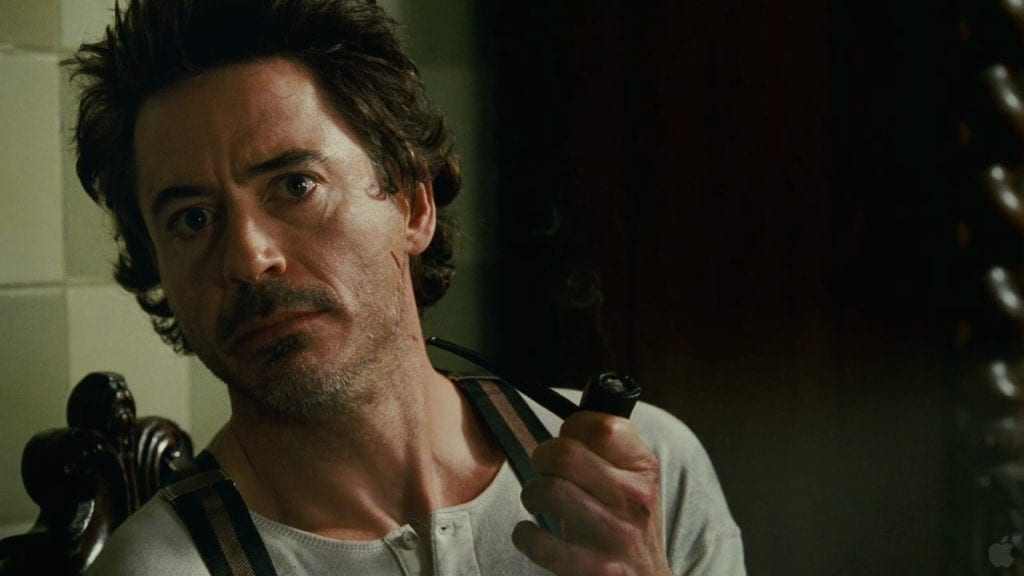
4. Robert Downey, Jr.
Far from the first American to play Sherlock Holmes, Downey brought his singular energy and presence to the role. Guy Ritchie’s Sherlock Holmes pay little heed to Doyle’s original source material. But through it, all Downey gives us delightfully fun and impish Holmes.
Arguably Downey’s Holmes is the least mature on the list. Ritchie’s characters tend to be the types found on the floors of local bars near closing time. The contrast between Doyle’s staunch upper-class tendencies and Ritchie’s deeply embedded working-class humor leads to a weird adventure yarn more suited for a Doc Savage book than a Sherlock Holmes story.
Downey pulls it off. His Watson (Jude Law) hews much more to the stuffy tweed wearing visage of his origins. Mixed with Downey’s street brawler Holmes though the two make the whole thing feel like an idea Shane Black had but never got around to working out. Downey’s performance seems to hint at the Holmes imagined by Doyle more than any other before or since. Less a faithful hew to the performances before him, Downey’s Holmes was a punk rock rebel.
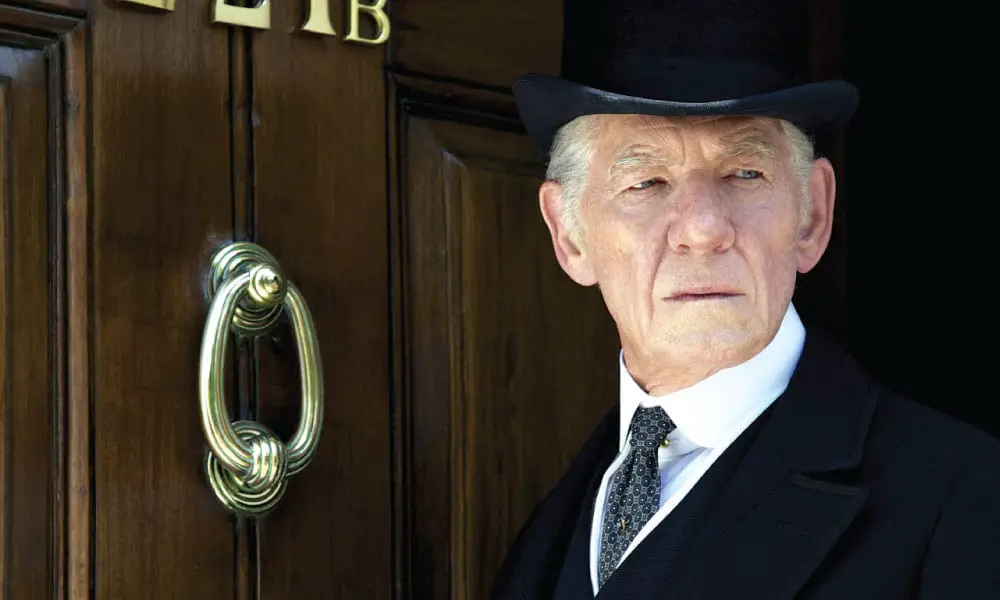
3. Sir Ian McKellen
Of all the movies about Sherlock Holmes, I find none of them as haunting and beautiful as Bill Condon Mr. Holmes. Less a faithful adaptation of the source material and more of a meditation on Holmes himself. Mr. Holmes none the less is a moving story about the great detective nearing the end of his life.
Sir Ian McKellen plays Holmes stripped of his pretenses. His determined gait and calculated movements now replaced with shaky hands and a walking stick less for show and more for necessity. Filled with regret and longing for the choices he’s made McKellen’s Holmes is a tragic melodramatic figure. Old age and dementia are raving the once great mind.
Condon plays with us as he intertwines the memory of Holmes and our expectations of Holmes laced with Holmes disapproval of the public’s perception of him. Staying with a widow and a young boy he finds himself enjoying their company. When the boy lashes out at his mother, Holmes demands he apologizes.
“Go after her. You must apologize for saying things that were meant to hurt. You were cruel. If you don’t apologize, you will regret it.” The boys scoff at the old man. “People always say that.” “Because it’s true.” Holmes snaps. When the boy asks if Holmes regrets anything, “So. Much.” McKellen’s Holmes is a man who realizes his loneliness is of his own doing.
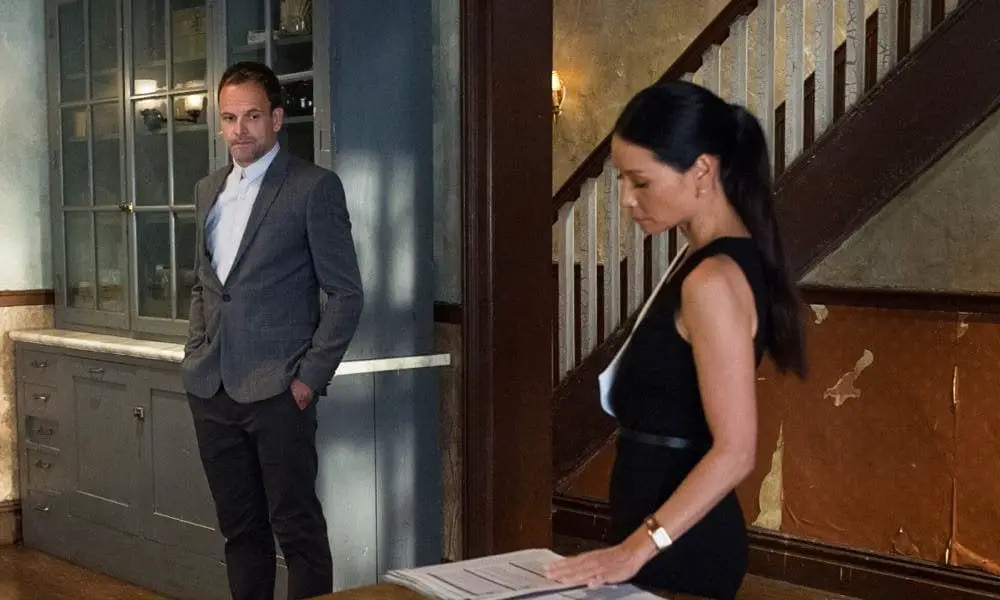
2. Jonny Lee Miller
Elementary is far and away the most complex and adult modern adaptation of Sherlock Holmes. The picture of Holmes (Jonny Lee Miller) with Watson (Lucy Liu) is apt. Unlike almost every other adaptation Watson is viewed as an equal part of the Holmes narrative. What we get is not just a Holmes story but a Holmes story about his relationship with another person who challenges and supports him at the same time.
He’s a fully functional adult who’s struggling with addiction. Holmes forthright struggle with addiction humanizes him in a way most other portrayals fail. Earlier Holmes either downplay Holmes drug abuse, such as Steven Moffat’s Sherlock. Or flat out ignore it. By addressing it and understanding that addiction is a lifelong progress, Elementary forces Sherlock to evolve not just as a character but as a human being.
Miller brings a wounded and confused anxiety to his Holmes. People are more than puzzles to him—they represent possibilities. He trains Watson because she shows an intellectual aptitude and a moral fortitude to what Holmes believes to be a higher calling, a private detective. His Holmes understands intelligence is something that is both inherent and taught. Miller’s Holmes is often the smartest person in the room but rarely is he the only smart person present.
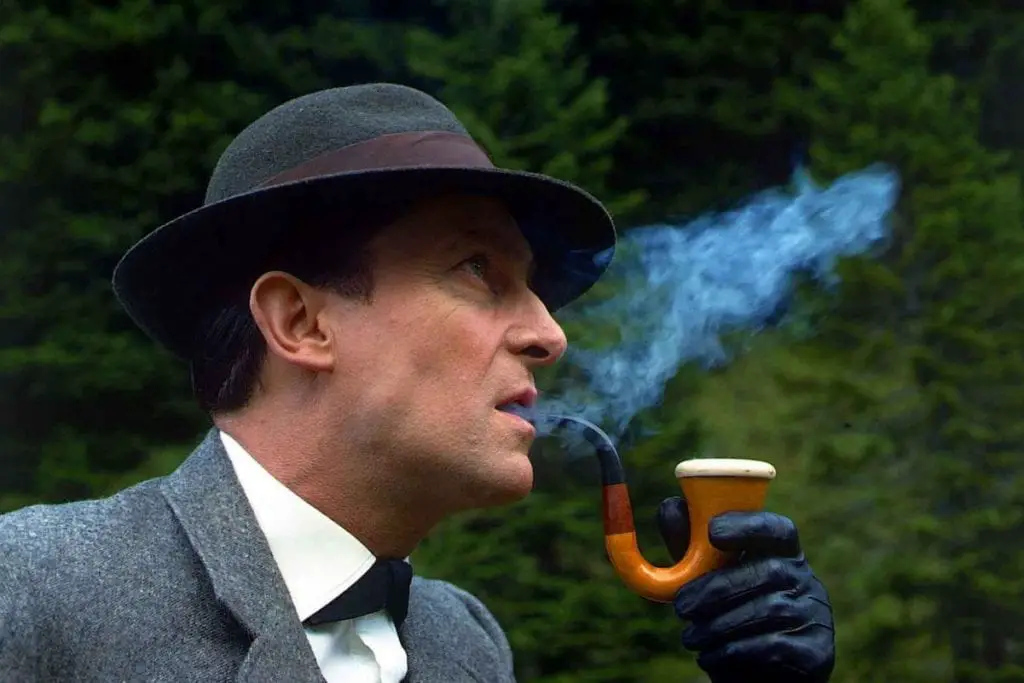
1. Jeremy Brett
Of all the Holmes on this list, none of them capture the mercurial enigma that is Jeremy Brett’s, Sherlock Holmes. His Holmes bubbles with glee and excitement underneath his quivering jaw. Cool and calm under fire but un-hesitant to leap to the floor crawling at the floorboards to reveal a hiding spot. Brett fumes with a manic energy that brings an entirely fresh and singular vision of Holmes.
Far from the stiff upper lit Londoner, Brett’s Holmes has a twinkle in his eye. A hunger for the rages within his breast as he shares with Watson how he had figured all out. Yet, much like Miller’s Sherlock, Brett also has a great humanity within him. The Case of the Blue Carbuncle, in particular, shows him scouring the London streets on Christmas Eve to help out a local policeman who’s come to him for help.
The Case of the Six Napoleons reveals to us the complex sensitive and egotistical side of the great man. Inspector Lestrade compliments Holmes on his deductive work. “We’re not jealous of you, you know? No sir, we’re proud of you.” Brett’s cool demeanor cracks as he receives validation from a source he respects very much. Brett’s Sherlock is quite simply a marvel of restraint with sudden outbursts of great emotion. Rarely has the great man ever been portrayed with such passion, glee, and deep sympathetic humanity.

